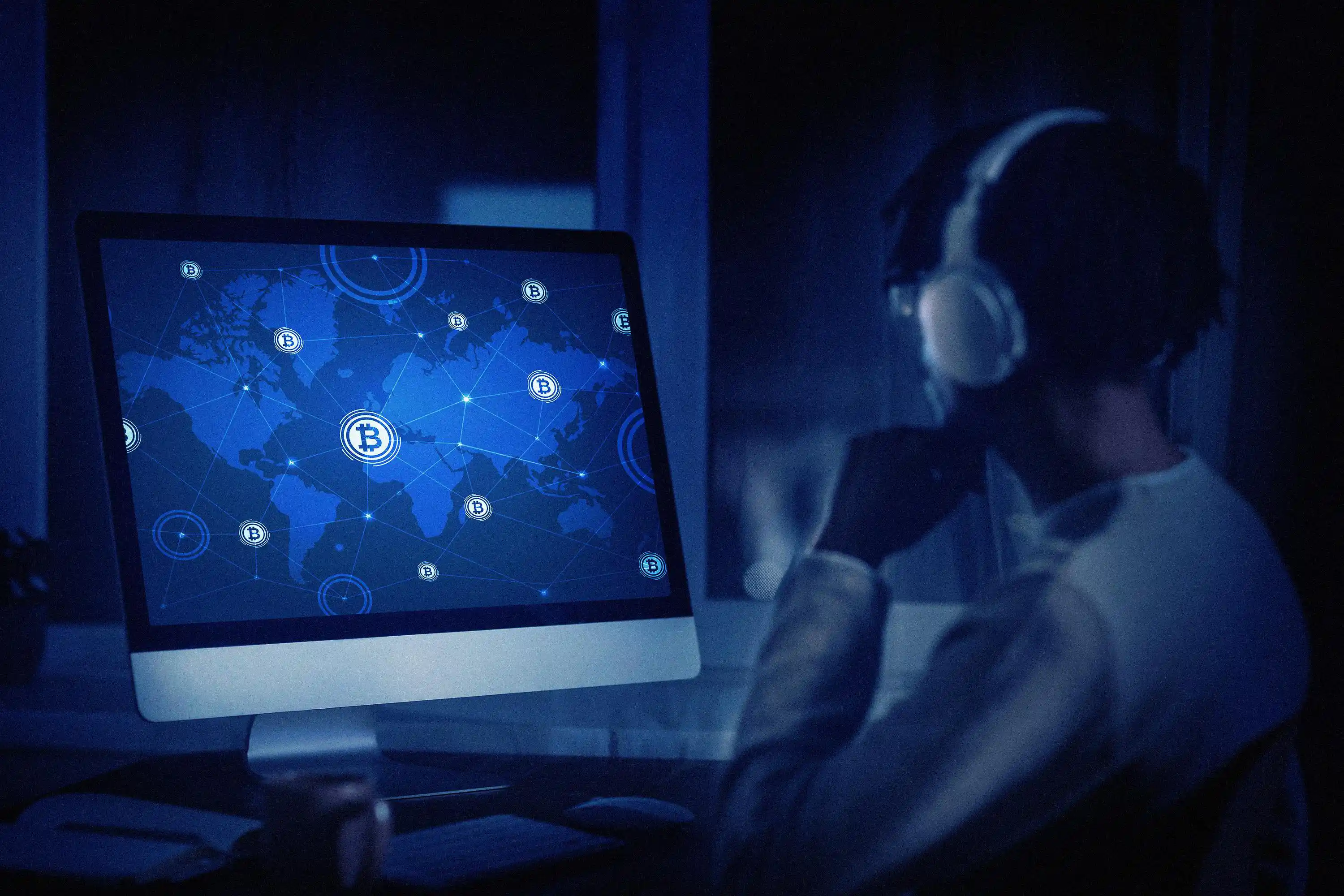The Future Of Blockchain Technology In Education
Jul 22, 2024



In recent years, the schooling quarter has undergone tremendous adjustments, evolving from conventional classroom settings to eLearning and blended getting-to-know fashions. The COVID-19 pandemic has, in addition, multiplied the adoption of virtual mastering, with schools worldwide embracing online systems and Learning Management Systems (LMSs) to facilitate faraway education. As we appear in the future, every other technological innovation stands poised to revolutionize the education blockchain industry.
Blockchain technology, recognized for its role in cryptocurrencies, can convert how academic records are managed and how educators and college students interact. This decentralized, immutable ledger system solves many demanding situations educational establishments face, from verifying credentials to streamlining administrative methods. As we discover the intersection of blockchain and schooling, we uncover a world of possibilities that beautify the getting-to-know revel and improve the efficiency of instructional systems.
In this weblog post, we're going to delve into six key ways blockchain technology might also affect schooling in the coming years. From smart contracts for course control to digital badges and credentials, we will study how this revolutionary technology may want to address longstanding problems inside the education area and open up new opportunities for novices and educators alike. Join us as we discover the future of blockchain in schooling and its ability to create greater obvious, green, and reachable studying surroundings.
Top 6 Ways Blockchain May Affect Education

1. Smart Contracts For Courses And Assignments
Smart contracts on blockchains could also make educators' jobs less difficult. A clever contract contains code strains programmed into a blockchain and done robotically while positive situations are met. Smart contracts can also be used to manipulate route content material and distribution. They can automate the shipping of direction substances, consisting of readings, films, quizzes, music scholar progress, and completion of assignments. This can lessen administrative workload and enhance the overall agency of courses.
Student Record Keeping
The fake levels (certificates) marketplace is growing along with online studying. This is becoming a major issue for many businesses and educational institutions internationally. So, a blockchain can effortlessly clear up this trouble with certification control, in which the universities can keep the certificate at the blocks as immutable entries. Students can also readily proportion these credentials using genuine URLs in their e-mail signatures, social media profiles, and resumes. Many blockchain development companies offer such certificate and identity control services. Since blockchain is decentralized, all the documents are saved in the blockchain and are immutable and verifiable, seeing that it is obvious.
Cryptocurrency For Rewards
Transferring documents and having them proven while a scholar modifies faculties is a hard technique that takes much time for the student, the instructor, and the management. Blockchain technology may streamline the verification method in colleges and universities. We are offered scholarships, trophies, and rewards for our overall extracurricular and educational sports performance. Still, blockchain technology enables us to provide children with tangible prizes in the shape of cryptocurrencies like bitcoins. Teachers can use gamification to reward their students in online studying environments for completing modules or other assignments. Learning Management Systems' gamification functions aid in tokenizing all rewards as virtual foreign money.
Digital Badges And Credentials
One of the most essential blockchain programs in eLearning is the introduction of stable digital badges and certificates that can be p, proven and displayed in one's digital portfolio without problems. Smart contracts can incentivize and facilitate peer-to-peer learning and collaboration. They may praise students for contributing to online discussions or presenting remarks on their peers' work. This can create more engaged and interactive learning environments and assist college students in expanding their important thinking and communication talents.
Ease Of Certification Authenticity
Blockchain's disbursed ledger technology can enhance transparency and duty within the academic field. It can create an immutable report of instructional facts consisting of transcripts, stages, and certifications; this is verifiable and tamperproof. In this way, instructional achievements can be tested with complete accuracy, and employers can be assured of the abilities and understanding of activity candidates.
Transferring documents and their verification is a time-ingesting procedure when students transfer from one school to another. The verification technique could be streamlined by introducing blockchain technology into schools and schools. When a pupil transfers from one institute to another, the scholar facts may be easily transferred to the new institute by granting access to the blockchain. Some blockchain development companies broaden and issue immutable and forgeable certificates but need help verifying authenticity.
Reduced Cost
This can also be extended to conditions wherein college students' grades who travel to other institutes as a part of change packages can be easily shared without difficulty across institutes by presenting the necessary right of entry, which reduces administrative costs.
Conclusion
The convergence of the physical world with Virtual Reality and Augmented Reality has extended, inflicting disruptions in various financial sectors internationally. Blockchains, a more modern technology when compared to traditional centralized databases, offer improved efficiency and garage ability. Cryptocurrencies, blockchain, and metaverse projects are already changing the monetary enterprise. Thus, incorporating those into an academic curriculum will not only provide extra possibilities to the youngsters but may establish a powerful, reasonably-priced framework that serves all strata and offers greater outreach for all college students, making learning a nice journey. A blockchain development company can help education establishments streamline their tactics, reduce charges, and beautify the nice of training via blockchain technology.
In recent years, the schooling quarter has undergone tremendous adjustments, evolving from conventional classroom settings to eLearning and blended getting-to-know fashions. The COVID-19 pandemic has, in addition, multiplied the adoption of virtual mastering, with schools worldwide embracing online systems and Learning Management Systems (LMSs) to facilitate faraway education. As we appear in the future, every other technological innovation stands poised to revolutionize the education blockchain industry.
Blockchain technology, recognized for its role in cryptocurrencies, can convert how academic records are managed and how educators and college students interact. This decentralized, immutable ledger system solves many demanding situations educational establishments face, from verifying credentials to streamlining administrative methods. As we discover the intersection of blockchain and schooling, we uncover a world of possibilities that beautify the getting-to-know revel and improve the efficiency of instructional systems.
In this weblog post, we're going to delve into six key ways blockchain technology might also affect schooling in the coming years. From smart contracts for course control to digital badges and credentials, we will study how this revolutionary technology may want to address longstanding problems inside the education area and open up new opportunities for novices and educators alike. Join us as we discover the future of blockchain in schooling and its ability to create greater obvious, green, and reachable studying surroundings.
Top 6 Ways Blockchain May Affect Education

1. Smart Contracts For Courses And Assignments
Smart contracts on blockchains could also make educators' jobs less difficult. A clever contract contains code strains programmed into a blockchain and done robotically while positive situations are met. Smart contracts can also be used to manipulate route content material and distribution. They can automate the shipping of direction substances, consisting of readings, films, quizzes, music scholar progress, and completion of assignments. This can lessen administrative workload and enhance the overall agency of courses.
Student Record Keeping
The fake levels (certificates) marketplace is growing along with online studying. This is becoming a major issue for many businesses and educational institutions internationally. So, a blockchain can effortlessly clear up this trouble with certification control, in which the universities can keep the certificate at the blocks as immutable entries. Students can also readily proportion these credentials using genuine URLs in their e-mail signatures, social media profiles, and resumes. Many blockchain development companies offer such certificate and identity control services. Since blockchain is decentralized, all the documents are saved in the blockchain and are immutable and verifiable, seeing that it is obvious.
Cryptocurrency For Rewards
Transferring documents and having them proven while a scholar modifies faculties is a hard technique that takes much time for the student, the instructor, and the management. Blockchain technology may streamline the verification method in colleges and universities. We are offered scholarships, trophies, and rewards for our overall extracurricular and educational sports performance. Still, blockchain technology enables us to provide children with tangible prizes in the shape of cryptocurrencies like bitcoins. Teachers can use gamification to reward their students in online studying environments for completing modules or other assignments. Learning Management Systems' gamification functions aid in tokenizing all rewards as virtual foreign money.
Digital Badges And Credentials
One of the most essential blockchain programs in eLearning is the introduction of stable digital badges and certificates that can be p, proven and displayed in one's digital portfolio without problems. Smart contracts can incentivize and facilitate peer-to-peer learning and collaboration. They may praise students for contributing to online discussions or presenting remarks on their peers' work. This can create more engaged and interactive learning environments and assist college students in expanding their important thinking and communication talents.
Ease Of Certification Authenticity
Blockchain's disbursed ledger technology can enhance transparency and duty within the academic field. It can create an immutable report of instructional facts consisting of transcripts, stages, and certifications; this is verifiable and tamperproof. In this way, instructional achievements can be tested with complete accuracy, and employers can be assured of the abilities and understanding of activity candidates.
Transferring documents and their verification is a time-ingesting procedure when students transfer from one school to another. The verification technique could be streamlined by introducing blockchain technology into schools and schools. When a pupil transfers from one institute to another, the scholar facts may be easily transferred to the new institute by granting access to the blockchain. Some blockchain development companies broaden and issue immutable and forgeable certificates but need help verifying authenticity.
Reduced Cost
This can also be extended to conditions wherein college students' grades who travel to other institutes as a part of change packages can be easily shared without difficulty across institutes by presenting the necessary right of entry, which reduces administrative costs.
Conclusion
The convergence of the physical world with Virtual Reality and Augmented Reality has extended, inflicting disruptions in various financial sectors internationally. Blockchains, a more modern technology when compared to traditional centralized databases, offer improved efficiency and garage ability. Cryptocurrencies, blockchain, and metaverse projects are already changing the monetary enterprise. Thus, incorporating those into an academic curriculum will not only provide extra possibilities to the youngsters but may establish a powerful, reasonably-priced framework that serves all strata and offers greater outreach for all college students, making learning a nice journey. A blockchain development company can help education establishments streamline their tactics, reduce charges, and beautify the nice of training via blockchain technology.
In recent years, the schooling quarter has undergone tremendous adjustments, evolving from conventional classroom settings to eLearning and blended getting-to-know fashions. The COVID-19 pandemic has, in addition, multiplied the adoption of virtual mastering, with schools worldwide embracing online systems and Learning Management Systems (LMSs) to facilitate faraway education. As we appear in the future, every other technological innovation stands poised to revolutionize the education blockchain industry.
Blockchain technology, recognized for its role in cryptocurrencies, can convert how academic records are managed and how educators and college students interact. This decentralized, immutable ledger system solves many demanding situations educational establishments face, from verifying credentials to streamlining administrative methods. As we discover the intersection of blockchain and schooling, we uncover a world of possibilities that beautify the getting-to-know revel and improve the efficiency of instructional systems.
In this weblog post, we're going to delve into six key ways blockchain technology might also affect schooling in the coming years. From smart contracts for course control to digital badges and credentials, we will study how this revolutionary technology may want to address longstanding problems inside the education area and open up new opportunities for novices and educators alike. Join us as we discover the future of blockchain in schooling and its ability to create greater obvious, green, and reachable studying surroundings.
Top 6 Ways Blockchain May Affect Education

1. Smart Contracts For Courses And Assignments
Smart contracts on blockchains could also make educators' jobs less difficult. A clever contract contains code strains programmed into a blockchain and done robotically while positive situations are met. Smart contracts can also be used to manipulate route content material and distribution. They can automate the shipping of direction substances, consisting of readings, films, quizzes, music scholar progress, and completion of assignments. This can lessen administrative workload and enhance the overall agency of courses.
Student Record Keeping
The fake levels (certificates) marketplace is growing along with online studying. This is becoming a major issue for many businesses and educational institutions internationally. So, a blockchain can effortlessly clear up this trouble with certification control, in which the universities can keep the certificate at the blocks as immutable entries. Students can also readily proportion these credentials using genuine URLs in their e-mail signatures, social media profiles, and resumes. Many blockchain development companies offer such certificate and identity control services. Since blockchain is decentralized, all the documents are saved in the blockchain and are immutable and verifiable, seeing that it is obvious.
Cryptocurrency For Rewards
Transferring documents and having them proven while a scholar modifies faculties is a hard technique that takes much time for the student, the instructor, and the management. Blockchain technology may streamline the verification method in colleges and universities. We are offered scholarships, trophies, and rewards for our overall extracurricular and educational sports performance. Still, blockchain technology enables us to provide children with tangible prizes in the shape of cryptocurrencies like bitcoins. Teachers can use gamification to reward their students in online studying environments for completing modules or other assignments. Learning Management Systems' gamification functions aid in tokenizing all rewards as virtual foreign money.
Digital Badges And Credentials
One of the most essential blockchain programs in eLearning is the introduction of stable digital badges and certificates that can be p, proven and displayed in one's digital portfolio without problems. Smart contracts can incentivize and facilitate peer-to-peer learning and collaboration. They may praise students for contributing to online discussions or presenting remarks on their peers' work. This can create more engaged and interactive learning environments and assist college students in expanding their important thinking and communication talents.
Ease Of Certification Authenticity
Blockchain's disbursed ledger technology can enhance transparency and duty within the academic field. It can create an immutable report of instructional facts consisting of transcripts, stages, and certifications; this is verifiable and tamperproof. In this way, instructional achievements can be tested with complete accuracy, and employers can be assured of the abilities and understanding of activity candidates.
Transferring documents and their verification is a time-ingesting procedure when students transfer from one school to another. The verification technique could be streamlined by introducing blockchain technology into schools and schools. When a pupil transfers from one institute to another, the scholar facts may be easily transferred to the new institute by granting access to the blockchain. Some blockchain development companies broaden and issue immutable and forgeable certificates but need help verifying authenticity.
Reduced Cost
This can also be extended to conditions wherein college students' grades who travel to other institutes as a part of change packages can be easily shared without difficulty across institutes by presenting the necessary right of entry, which reduces administrative costs.
Conclusion
The convergence of the physical world with Virtual Reality and Augmented Reality has extended, inflicting disruptions in various financial sectors internationally. Blockchains, a more modern technology when compared to traditional centralized databases, offer improved efficiency and garage ability. Cryptocurrencies, blockchain, and metaverse projects are already changing the monetary enterprise. Thus, incorporating those into an academic curriculum will not only provide extra possibilities to the youngsters but may establish a powerful, reasonably-priced framework that serves all strata and offers greater outreach for all college students, making learning a nice journey. A blockchain development company can help education establishments streamline their tactics, reduce charges, and beautify the nice of training via blockchain technology.

DecentraBlock is at the forefront of blockchain innovation, revolutionizing how businesses secure, transact, and grow in the digital age. Join us on a journey to harness the full potential of decentralized technology for a more efficient and transparent future.
Services
Subscribe to Our Newsletter
Get the latest news, updates, and insights on blockchain technology directly to your inbox. Sign up for our newsletter today!
© 2024 DecentraBlock. All rights reserved.

DecentraBlock is at the forefront of blockchain innovation, revolutionizing how businesses secure, transact, and grow in the digital age. Join us on a journey to harness the full potential of decentralized technology for a more efficient and transparent future.
Services
Subscribe to Our Newsletter
Get the latest news, updates, and insights on blockchain technology directly to your inbox. Sign up for our newsletter today!
© 2024 DecentraBlock. All rights reserved.

DecentraBlock is at the forefront of blockchain innovation, revolutionizing how businesses secure, transact, and grow in the digital age. Join us on a journey to harness the full potential of decentralized technology for a more efficient and transparent future.
Services
Subscribe to Our Newsletter
Get the latest news, updates, and insights on blockchain technology directly to your inbox. Sign up for our newsletter today!
© 2024 DecentraBlock. All rights reserved.


